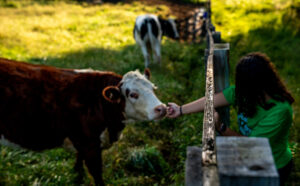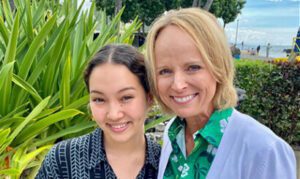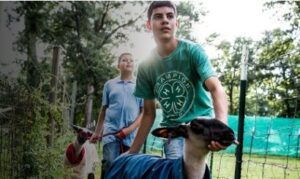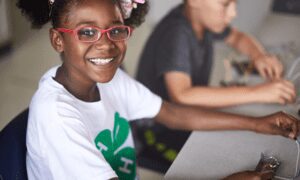4‑H and Disney Conservation Fund collaborate for third year to promote first-hand conservation experiences through Connecting Youth to Nature (4‑H CYN) program.
CHEVY CHASE, Md. (September 9, 2016) — Kids are spending less time outdoors today. In fact, a new study estimates that the average child spends less than an hour outdoors each day. To combat this trend, National 4‑H Council will engage more than 10,000 urban youth to increase the time kids spend in nature through the 4‑H Connecting Youth to Nature (4‑H CYN) program. Disney Conservation Fund has supported 4‑H CYN for the past three years to bring youth into nature through programming that introduces them to local ecosystems and hands-on experiences. Connecting Youth to Nature also helps children develop a lasting interest in protecting and caring for the environment.
“Spending time in nature is one of the most important things a child can do,” said Jennifer Sirangelo, President and CEO of National 4‑H Council. “If you look at how nature affects young people, it really is miraculous: it can reduce obesity, alleviate stress and anxiety, boost creativity and cognition— and the list goes on. The beauty of 4‑H Connecting Youth to Nature is that it not only allows underserved youth to experience the wonders and benefits of nature first-hand, it prepares these youth to be good stewards of the environment as adults. It starts kids down a path where they learn to appreciate, understand and ultimately protect the environment.”
With immersive environmental activities that range from growing butterflies to testing water quality, the 4‑H CYN program will engage youth in urban communities across eight states where they will learn fun ways to protect and preserve the planet. Participating youth in California, Connecticut, Florida, Hawaii, New York, North Carolina, South Carolina, and Texas will engage in hands-on experiences through 4‑H afterschool clubs and summer camps.
Last year, the 4‑H CYN program exceeded its goals by exposing more than 13,000 youth, families and volunteers to the joys of nature and the outdoors. Through camps, field trips, afterschool programs, in-school projects, and teen-led enrichment programs, urban youth spent more than 100,000 hours in nature over the course of 10 months. As a result of the program, 90 percent of participating youth said they felt good when they are outdoors, 88 percent said they care more about the environment, and 78 percent said they feel it’s their responsibility to protect nature.
4‑H Connecting Youth to Nature ties into the Disney Conservation Fund (DCF) Reverse the Decline, Increase the Time initiative, which launched in April 2016 in honor of the fund’s 20th anniversary. The effort build on DCF’s conservation work over the last two decades and brings focus to two specific impact areas: 1) reversing the decline of 10 endangered animals and 2) increasing the time kids spend in nature to inspire them to care for the planet.
About Disney Conservation Fund
Established on Earth Day in 1995, DCF helps to protect the planet and connect kids with nature. Supported by Disney and guest purchases and contributions at Walt Disney Parks and Resorts, DCF has proudly contributed $40 million in grants to nonprofit organizations working in 115 countries. For more information visit www.disney.com/conservation.
About 4‑H
4‑H, the nation’s largest youth development organization, grows confident young people who are empowered for life today and prepared for career tomorrow. 4‑H programs empower nearly six million young people across the U.S. through experiences that develop critical life skills. 4‑H is the youth development program of our nation’s Cooperative Extension System and USDA, and serves every county and parish in the U.S. through a network of 110 public universities and more than 3,000 local Extension offices. Globally, 4‑H collaborates with independent programs to empower one million youth in 50 countries. The research-backed 4‑H experience grows young people who are four times more likely to contribute to their communities; two times more likely to make healthier choices; two times more likely to be civically active; and two times more likely to participate in STEM programs.
Learn more about 4‑H at www.4‑H.org, find us on Facebook at www.facebook.com/4‑H and Twitter at www.twitter.com/4H.
















